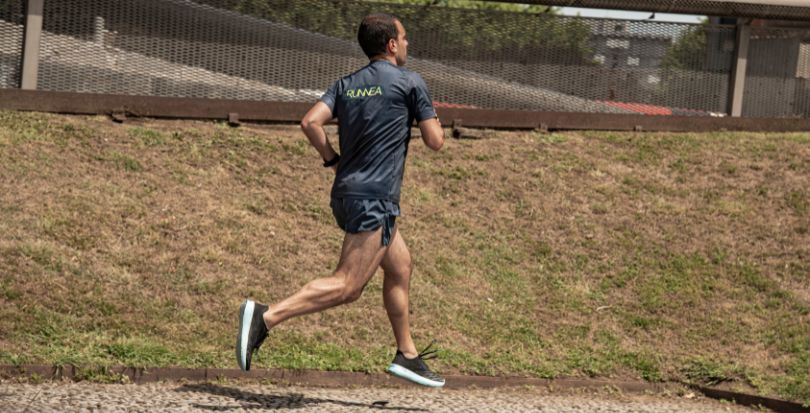You may be interested in:
Today we're not going to mess around. It is a reality that although our main purpose, when we set out to run is to enjoy ourselves, a large number of runners make certain mistakes that prevent or slow down the process of improving performance, an aspect that is becoming more and more important. Setting a sporting objective not only involves training, but also controls the planning and periodization of the sessions, as well as records and analyzes the training loads.

Therefore, you should know that putting on your running shoes and training "the old-fashioned way" or opting for improvisation is not the best way to increase your performance, whether training or competing. We don't mean by this that you should stick to a plan 100% or that you have to follow a schedule 12 months of the year.
Training for pleasure and doing "whatever we want" is allowed as long as it is contemplated and does not harm the planning or when we are out of season. The rest of the time we should stick to the requirements of the training plan as much as possible, knowing that there are certain times when it will be very difficult to combine running with work, family or other commitments.
We are aware that although it is advisable, some runners do not train under the umbrella of a training plan or even if they do, they skip it "at the drop of a hat". That's why we are going to try to identify the most common 5 mistakes that prevent you from improving as a runner. Ready, set, go!
5 mistakes that prevent you from improving as a runner
Here are the top 5 mistakes you're sure to have made at some point. Let's hope they are not all of them...
1. Repetition of stimuli
In this first point, we are going to address one of the most common issues among popular runners. Basically, it is that out of habit we do the same type of training, both in terms of duration or distance and in terms of the intensity (pace) that we take when running. As a society, we love to follow "traditions" and when it comes to running, doing the same workout every week or several times a week is very typical.
It is very common to hear phrases like: "every time I go running I do 10 kilometers" or "every Sunday I do the same route".
Although it does not have any negative repercussions in terms of health, it does have negative repercussions when it comes to improving performance. Our body understands stimuli and improves based on them. Although in the initial phases these sessions also improve our form, little by little these adaptations will stagnate because the body does not perceive "novelty". That is why the variety of stimuli is one of the most important things in a training plan. But not only in terms of type of sessions or exercises, but advocating the principle of progression, we should be increasing the load (volume and intensity) at the time that the body is already accustomed to a particular type of stimulus.
2. Incorrect dosage of efforts
It is very likely that on some occasion you have experienced the physical and mental well-being that is generated once you have done a demanding session. High heart rate, sweating and muscle pain are some of the consequences of running at high intensity. The problem comes with the belief that in order to improve you have to finish each session with this feeling of exhaustion. And this, runners, is a serious mistake.

The process of performance improvement follows a cycle in which stressful stimuli are combined with stimuli that promote recovery, including complete rest. If we are always in the habit of running at medium and high intensities we will cause the improvement processes to be "blocked" because we will always be in a state of high fatigue.
So, you should change the chip and include in your weekly routine a larger percentage of sessions at low intensity than at medium and high intensity, as they will allow you to recover from the most demanding efforts, in addition to putting the grain of sand in the improvement of your physical form.
At least half (if more, the better) of the weekly sessions should be run at low intensity, which means running at Z1-Z2 pulse or at a subjective perception of effort that does not exceed a valor of 5 out of 10.
3. Lack of intensity planning
Although running often looking for our limit is a big mistake, the truth is that there should be this type of sessions in our training plan. The key is to know how to distribute this type of sessions during the week, an aspect in which we fail in many occasions. Whether due to lack of availability or habit, it is typical to see runners who accumulate two or even three consecutive sessions of medium or high intensity without any rest day or more regenerative session.
As a rule, except in the case of experienced and high-level athletes or because we are looking for a controlled state of fatigue (functional overtraining), there should always be a day of rest or low-intensity running the day before and after a demanding workout such as series, fartlek or hills.
If you are the type of person who puts two "hard" sessions between your chest and back, for example, on the weekend, make sure that one of them is at low intensity and reserve a day during the week for another high-intensity session
4. Lack of complementary work
It's not all about running. Although it is the most important part, there is more to it than just striding. Although our body is naturally prepared for running, this preparation is not enough when we have a continuous routine over time. In this case, the inclusion of complementary work to strengthen our body and prepare our structures for the impact against the asphalt is a must.

When we talk about complementary work we refer to the strength work of our whole body, including the strengthening of our core. Also, including routines to improve joint mobility or certain specific stretches to improve the range of motion of the most limited joints will help to not only improve performance, but also avoid the recurrent appearance of injuries.
The recurrent appearance of muscular discomfort or injuries interrupts the course of the training plan, as well as slowing down the progress to improve as runners again and again.
5. Misunderstanding of invisible training
When we talk about invisible training , we are referring to everything that happens outside the session and that has a direct impact on the athlete's improvement and recovery process. Here come into play the time of rest and sleep, food or any healthy (or unhealthy) habits we have during the day. It is called training because despite not having to perform any physical exercise, it has an impact on our body.
Here are some tips for invisible training to positively affect the improvement of our performance:
- Get real rest: avoid to a large extent any extra activity not contemplated in your plan such as alternative sports, hiking or cycling outings.
- Get a good night's sleep: try to set a regular bedtime and avoid dinner and exciting activities until at least 2 hours before bedtime.
- Eat right: a conscious, balanced diet adapted to your needs will help you recover better and maximize your performance.
- Take care of your body and mind: regular visits to a physiotherapist, meditation or concentration routines and reading are some of the things you can do to boost your physical and mental homeostasis (balance).
Mistakes always have a solution
Even if, after reading this article, you have made each of the mistakes described above, running and our advice, why not say it, give you the opportunity to change your way of acting and incentivize that improvement in performance that is costing you so much.

There is nothing better than being aware and understanding how, when and why you train in order to improve as a runner.
Read more news about: Running Training





































